Dumfries farm is 'most authentic' site linked to Robert Burns
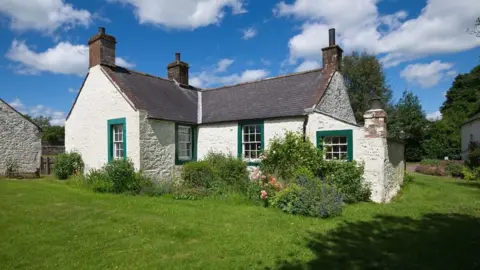 Ellisland Trust
Ellisland TrustA Dumfries farm where Robert Burns lived is one of the "most authentic" sites linked to his lifetime, researchers believe.
A new study of Ellisland Farm revealed he was responsible for building more of the property than previously known.
Architectural historian, Dr William Napier, said: "If Burns walked through the gate today he would recognise the farm he established."
Burns wrote some of his most famous works at Ellisland from 1788 to 1791.
The detailed heritage survey of the site, announced last year, revealed it requires repair work costing about £500,000.
Dr Napier, a building surveyor based in Peebles, said the research delivered a number of surprises about the poet's life there.
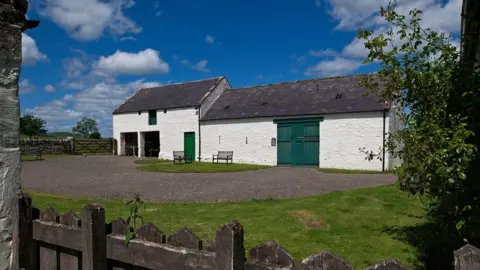 Robert Burns Ellisland Trust
Robert Burns Ellisland Trust"During that period of research we understand much more of the farm's development - that he was responsible for building more of the buildings than previously thought," he said.
"After he left, the farm obviously was developed and new buildings were added, but essentially we can be confident that if Burns walked through the gate today he would recognise the farm that he established.
"We think now we can be confident that Ellisland Farm is probably the most authentic site associated with Burns' lifetime and I think that that makes it a really important place."
It was previously thought that Burns was only responsible for the farmhouse. The research suggest both the barn and the byre and stable were also his work.

Dr Napier said it was a "hidden gem" but one in need of considerable work.
"Although it needs a lot of repairs it could have been an awful lot worse," he said. "This farm has avoided the large agricultural buildings and knocking down of older farmsteads.
"We are very fortunate that although there are a lot of repairs required the farm is in good heart. In terms of authenticity this is unparalleled and Burns would recognise it if he was able to come back today."

Among those trying to stop people just "driving past" the property is digital assistant Ellis Corrigan who is helping to promote the farm using her artwork and building online awareness.
"It is a landscape that inspired Burns so being able to use that to inspire my own artwork is a bit of a privilege really," she said.
She said it was an ideal spot to recite one of his most famous works written there.
"They say Tam O'Shanter is a walking poem so you walk to the beat along this river and that's the rhythm that you say Tam O'Shanter to," she said.
"It is a stunning landscape and well worth coming to see. You walk along and, if you say it to yourself, it is like Burns is walking alongside you saying the poem with you."
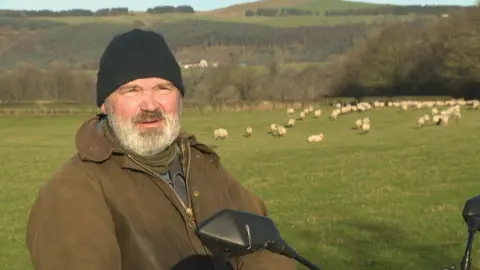
Bertie Austin's family has farmed at Ellisland for more than four decades. He said it would have been a tough place for the poet to eke out a living.
"I think it would be the surroundings that he chose - I don't think he chose it for the ground," he said.
"It is quite a challenging place to farm, it is quite hard.
"It is hungry soil - meaning it's quite light soil - it needs a lot of feeding. I think probably he would find it very hard when he was here."
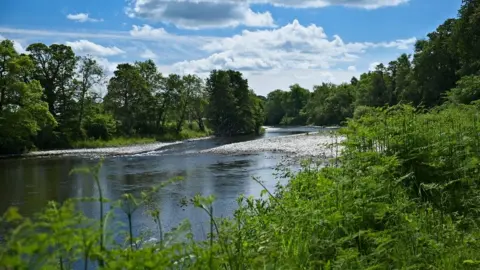 Robert Burns Ellisland Trust
Robert Burns Ellisland TrustHowever, the poet - who was born in Alloway in Ayrshire and died in nearby Dumfries - still made his mark during his time at Ellisland.
"Prior to Burns getting here it was part of an estate and I don't really know who was in the place," said Mr Austin.
"He brought Ayrshire dairy cattle here and that was quite a new thing.
"I think visitors like to see it still working as a farm.
"It is good that it hasn't really changed so much that it is unrecognisable from when he was here."

It is now up to Ellisland's business development manager Joan McAlpine to deal with the findings from the survey.
"It is good because it tells us lots of fascinating stuff about the fact that Burns built many more of the buildings than we previously believed," she said.
"But it also identified £500,000 worth of repairs and that's the challenge I have as the business manager here to find the funds to do that.
"It is a hugely exciting challenge, it is such a special place."
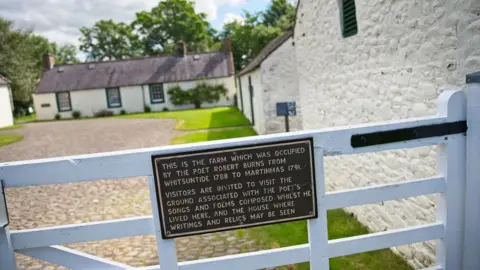 Robert Burns Ellisland Trust
Robert Burns Ellisland TrustThere are long-term plans to develop the site as a "centre of creative learning" but, in the meantime, she hopes people will visit when it opens again in April or make a donation.
Ms McAlpine said that the farm, as the "home of Auld Lang Syne", retained a strong link to Burns to this day which made it worth preserving.
"People do say that they feel his presence here in a way that you don't in other places," she said.
